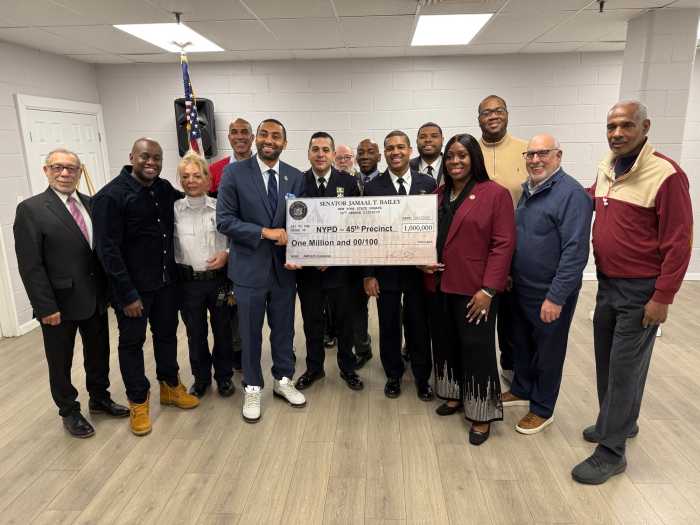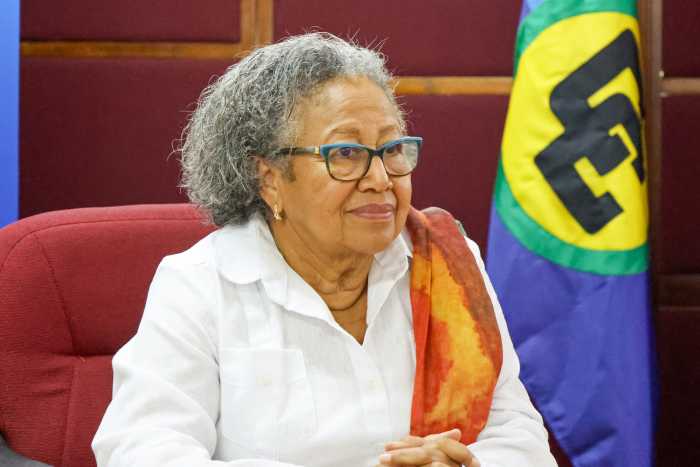The five-member Idaho Supreme Court has ruled unanimously that state law allows for second-parent adoptions, reversing a magistrate judge’s dismissal of an adoption petition on the grounds that the petitioner was not married to the children’s legal mother.
The February 10 ruling overturning a decision by Ada County Magistrate Judge Cathleen MacGregor-Irby — who had dismissed Darcy Drake Simpson’s adoption petition because she is not the legal spouse of Rene Simpson, whom she married last year in California — is based on a literal interpretation of the Idaho adoption statute, which provides that “any adult” at least 15 years older than the prospective adoptee can file an adoption petition.
Although Justice Jim Jones’ opinion for the court uses pseudonyms, the two mothers were identified by the Idaho Statesman newspaper. The couple held a commitment ceremony in Boise in 1997, formed a Vermont civil union in 2002, and married in California last year. Rene gave birth to their first son in 1998 and she adopted a second son as an infant in 2001. The Idaho Constitution bars state recognition of either the couple’s marriage or their civil union.
State Supreme Court finds no bar to lesbian’s petition, despite marriage ban
After the women’s marriage last year, Darcy petitioned to adopt the two boys and Rene gave her written consent. A professional home study found that Darcy has been the boys’ primary caregiver while Rene provides the family’s main financial support. In spite of that, MacGregor-Irby dismissed the petition — without holding a hearing — stating that “the petitioner must be in a lawfully recognized union, i.e. married to the prospective adoptee’s parent, to have legal standing to file a petition to adopt that person’s biological or adopted child.”
Darcy filed a motion for the judge to reconsider her decision since no hearing had been held and Idaho’s adoption statute does not require that a petitioner be married to the child’s legal parent. MacGregor-Irby dismissed that motion, as well.
The Supreme Court found that the lack of a hearing violated Darcy’s right to due process of law, since Idaho’s adoption law provides that an adoption petitioner is entitled to one.
Darcy, Justice Jones wrote, “had no notice that her petition could potentially be dismissed because there was no opposition to it. Rather, the magistrate court acted unilaterally in dismissing it.”
The high court also found that MacGregor-Irby misconstrued the adoption statute in writing that there was no express provision for such adoptions and they were not consistent with “legislative intent.” Courts generally only look to legislative intent if a statute has ambiguity in its wording, and here the Supreme Court faulted MacGregor-Irby for failing to determine whether that was the case.
The unanimous court agreed with Darcy that state law does not require that she be married to Rene in order to adopt the children. Though the statute mentions “spouse” and “married” several times, those terms are not used in a way to suggest the petitioner must be married to the legal parent.
Perhaps mindful of the way in which the court’s ruling could be misconstrued in news reports and adverse political reaction, Jones wrote, “This is not a case dealing with same-sex marriage. Rather, it is strictly a case dealing with Idaho’s adoption laws. Those laws, including the issue of who may adopt, are set by the Idaho Legislature. The Legislature has imposed no restrictions that would disqualify Jane Doe from seeking to adopt Jane Doe I’s children, and the Court will not imply any such restrictions based upon Idaho’s marital statutes. We emphasize that Jane Doe’s sexual orientation was wholly irrelevant to our analysis.”
The Supreme Court sent the case back to MacGregor-Ibry to determine whether the adoptions would be in the best interests of the children.
In a concurring opinion, Justice Joel D. Horton offered one cautionary note. The Idaho statute requires that a parent consenting to an adoption must simultaneously consent to the termination of their rights.
“The takeaway is simply this,” wrote Horton. “Parents wishing for a new spouse or domestic partner to adopt must offer to consent to the termination of their parental rights and hope that the judge doesn’t accept the offer.”
For a judge to accept such an offer, of course, would be absurd in this type of situation, where a couple plans to continue raising the children as a family.
Lisa Shultz, Nate Peterson Law PLLC, and Mauk & Burgoyne, all Boise attorneys, represent the Simpsons.


































